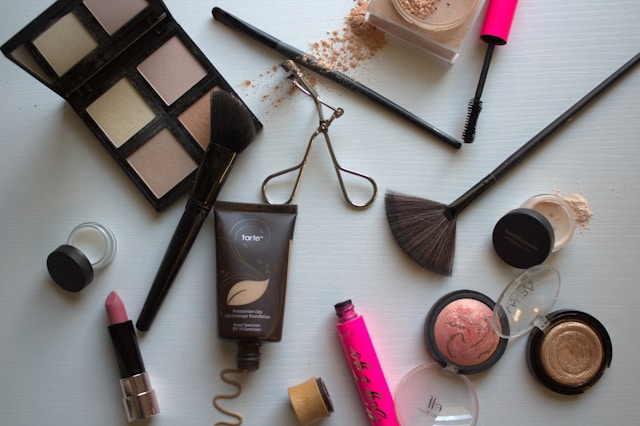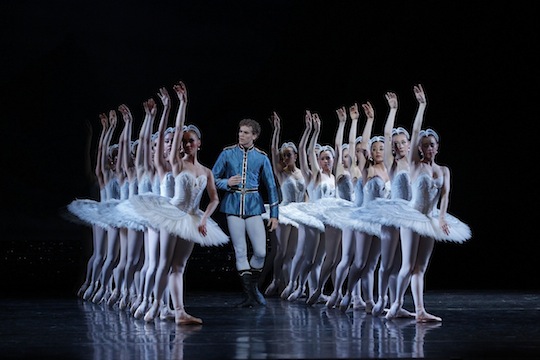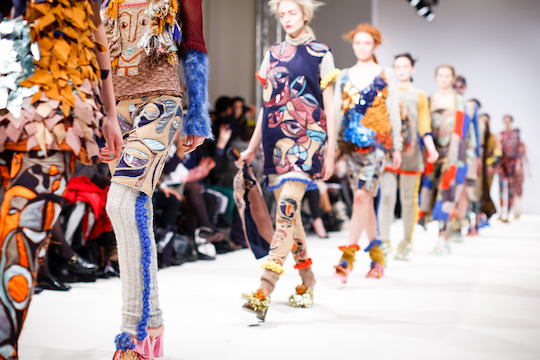Makeup artists, known in the industry as MUAs, are the true magicians of the beauty world. With a few brushes, colour palettes, and a trained eye for detail, they can transform everyday faces into stunning works of art. Makeup artists do more than just apply cosmetics; they have a profound impact on their clients’ confidence and self-esteem. Skilful and thoughtfully applied makeup can make someone feel beautiful, unique, empowered, and able to take on the world with confidence.

The Versatility of Makeup Artists
Makeup artists are an integral part of the beauty and filming industry, using their skills to enhance natural features, create bold and dramatic looks, and transform appearances for special occasions. From everyday beauty applications to intricate special effects for film, theatre, and television, their craft covers a wide range of settings. MUAs are not just professionals in cosmetics; they are artists who alter or accentuate a person’s appearance, whether for a wedding, fashion show, photoshoot, film, or a theatrical performance. Their expertise extends beyond the application of traditional beauty makeup to include special effects, prosthetics, and body painting. In a sense, it would be fair to say that the characters in films would not exist but for the skills and artistry of the makeup artists involved in their creative process. Think of Robin Williams in the unforgettable film, ”Mrs Doubtfire”, or Dustin Hoffman in “Tootsie”, for instance, the many characters found in the “Star Trek” series, amongst hundreds of other roles – all brought into visual existence thanks to the efforts of these professionals.
The Impact and Role of Makeup Artists
The work of a makeup artist significantly affects how their clients feel. Whether it’s a subtle beauty enhancement or a complex transformation, makeup artistry conjures emotion, tells stories, and leaves lasting impressions. Makeup artists can work in a variety of environments, from the fast-paced backstage of fashion shows or theatre productions to intimate one-on-one settings such as a client’s home or a professional studio.
A makeup artist’s main responsibility is to apply cosmetics to enhance or change a person’s appearance. Makeup artists may find themselves in diverse settings, such as salons, photographic studios, film and television sets, theatres, fashion runways, and personal events like weddings, celebratory events or themed functions.
MUAs must understand the client’s needs and transform them into the desired look. This might mean creating a natural, glowing look for a bride, designing and bringing to life a bold look for a fashion runway, or creating a character for a film. This requires not only technical skills but also a deep understanding of facial anatomy, colour theory, and the impact of lighting on makeup.
Examining the Key Responsibilities of a Makeup Artist
- Client Consultation: Assessing the client’s skin tone, facial features, and the occasion, to determine the best makeup approach.
- Application of Makeup: Using a variety of tools and products, makeup artists apply foundation, eyeshadow, lipstick, and other cosmetics to achieve the desired effect. For specific occasions like weddings, they may work with the bride’s hairdresser to ensure a seamless blending of makeup into the hairline, particularly for upswept hairstyles.
- Personal Services: Offering makeup consultations and applications for daily wear or special events.
- Special Effects Makeup: Creating special effects for film and theatre, which may include prosthetics, fake blood, simulation of wounds or infections, and other materials for character creation or transformations. This requires a strong awareness of colour, design, and the ability to think outside the box to create unique looks. MUAs have expertise in the creation of special effects, and knowledge of sculpting, moulding, and casting, as well as a keen attention to detail and precision.
- Staying Current: Keeping up with emerging trends, techniques, and products to remain competitive and meet evolving client expectations.
- Adaptability: The ability to perform under pressure, especially in fast-paced environments like fashion shows or film sets, where quick adjustments and touch-ups are often needed.
Makeup Artists Help Shape Public Perception of Beauty
Makeup artists have a broad cultural impact. Through their work with celebrities, models, and influencers, they are perfectly placed to shape public perceptions of beauty and inspire new trends and styles. MUAs set the tone for what is considered beautiful and fashionable – think of Twiggy’s iconic eye makeup that defined the 1960s. They assist in driving shifts in beauty standards and inspiring looks that resonate worldwide. They continuously explore new products, techniques, and styles, staying ahead of the latest trends and incorporating fresh approaches into their work.
MUAs’ Artistry Facilitates the Empowerment of Clients
A makeup artist’s true magic lies in their ability to make their clients feel confident and beautiful. From runway shows to weddings, makeup artists enhance their clients’ best features and help them feel at their most empowered. Whether the goal is a natural, radiant look or a bold, avant-garde style, makeup artists skilfully tailor their application and techniques to suit individual needs, playing a vital role in the beauty and fashion industries.
In essence, makeup artists blend creativity, technical skill, and a deep understanding of their clients’ needs to elevate beauty, boost confidence, and inspire trends. Through their work, they shape the face of beauty and fashion worldwide, making them indispensable professionals in their field.

